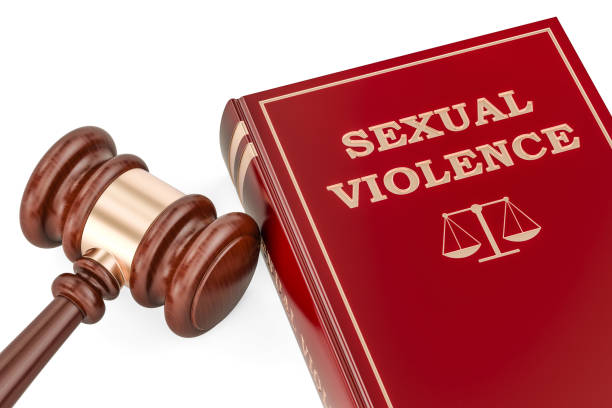This article will discuss the topic of sex offender registry and how it works in New South Wales (NSW), Australia. The issue of sex crimes and sexual abuse has become a significant concern globally. In NSW, the government has implemented a sex offender registry to protect the public from potential predators.
The Child Protection Register or sex offender registry (SOR) is a database that stores information about individuals convicted of sexual offences against a child. It is under the supervision of the New South Wales Police Force. The registry aims to reduce the risk of sexual offences and ensure that the community is aware of the presence of convicted sex offenders.
Purpose of the Sex Offender Registration
The creation of the sex offender registry in NSW in 2000 is part of the Child Protection (Offenders Registration) Act. The primary purpose of the registry is to assist law enforcement agencies to monitor and manage the behaviour of convicted sex offenders, intending to prevent them from committing further offences.
By registering with the police, sex offenders in NSW must provide contact and personal details, including their name, date of birth, address, and photograph. This information is stored in a secure database. Authorised persons such as police officers and government agencies may access such information.
Another essential function of the registry is to enable police to notify members of the community who may be at risk of harm from a particular offender. This can include notifying schools, childcare centres, and other organisations that work with children. The registry also allows individuals to request information about registered sex offenders in their local area.
In addition to these functions, the sex offender registry also plays a vital role in helping to prevent the sexual abuse of children. By providing information to the community about the risks posed by convicted sex offenders, the registry can help parents and caregivers to take appropriate steps to protect children from potential harm.
How the Registry Works
In NSW, convicted sex offenders must register with the police within seven days of their release from custody or within seven days of being convicted. The offender’s personal information, including their name, address, photograph, and details of their conviction, are entered into the sex offender registry.
Other law enforcement agencies across Australia can also access the registry. The information can help these agencies monitor the movements of registered sex offenders and ensure that they comply with their reporting obligations.
The New South Wales Police Force manages the sex offender registry in New South Wales. The police are responsible for registering convicted sex offenders and updating their information on the registry. The registry is not accessible to the general public, but individuals can request information about specific offenders if they have a legitimate reason.
Information Available to the Public
Members of the public can access limited information about the registered sex offenders in NSW. The information available includes the offender’s name, photograph, and general location. However, the data is available only to those with a legitimate reason for accessing it, such as employers, landlords, and parents of children who attend the same school as registered sex offenders. Thus, the information is not available to the general public.
Who Is Required to Register?
Section 3A of the Child Protection (Offenders Registration) Act 2000 provides that “A registrable person is a person whom a court has at any time (whether before, on or after the commencement of this section) sentenced in respect of a registrable offence, and includes a corresponding registrable person.”
Anyone convicted of a sexual offence in NSW must register with the SOR. This includes people convicted of sexual assault, child sexual abuse, and possession of child pornography. The length of time a person must remain on the registry depends on the severity of their offence and the age of the victim.

What Are the Rights of a Registrable Person?
Section 19B of Child Protection (Offenders Registration) Act 2000 provides for the rights of a registrable person.
- A registrable person can request the Commissioner of Police to provide the person with a copy of all the reportable information in the Register concerning the person.
- A registrable person may request the Commissioner of Police to amend any reportable information held on the Register in relation to the person that is incorrect, and the Commissioner of Police must comply with such a request on being satisfied that the information is incorrect.
Offences that Require Registration
In New South Wales, individuals who are convicted of certain sex offences should register with the police. There are two categories of registrable offences – Class 1 and Class 2. Attempts, conspiracies, and instigation to perform specific crimes fall under both categories. They also cover offences committed outside of the state and offences committed before the law took effect.
Class 1 offences consist of:
- murdering a child, and
- any crime involving sexual intercourse with children and those committed outside Australia.
Class 2 offences include:
- participating in international sexual offences against minors
- kidnapping or abduction of a child
- grooming a person under 16 years of age for unlawful sexual activity
- manslaughter or causing significant injury to the child;
- encouraging or profiting from child prosecution
- acts of indecency

JB Solicitors Can Help You
The public sex offender registry in NSW plays an important role in conducting proper sex offender management. By requiring convicted adult or child sex offenders to register, law enforcement agencies can better monitor their behaviour and intervene if necessary.
While the registry is not open to the public, it provides valuable information to specific organisations. These organisations work to protect vulnerable members of society. Sexual offences and related offences are a serious issue in Australia, and victims deserve support and justice.
Our team of lawyers at JB Solicitors can help victims of sex offences. We can help them navigate the legal system, access support services, and receive the compensation they deserve. If you or your child has been a victim of sexual assault, it is crucial to seek legal help immediately.
Contact us now if you need help with a sex offenders register.
